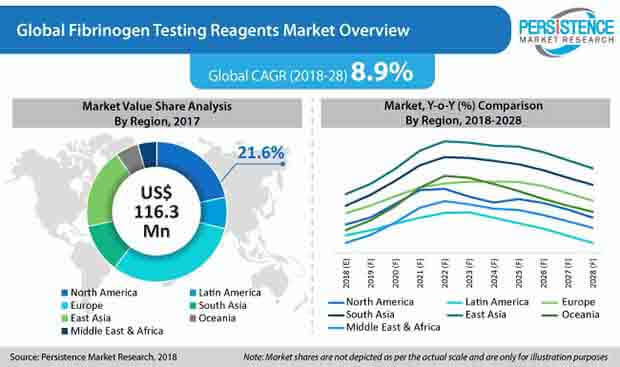Radiation Oncology is a type of treatment that uses high-energy radiation to kill cancer cells. It is an important part of cancer treatment but often comes with a hefty price tag. In this blog post, we will take a look at the cost of radiation oncology treatments, as well as some factors that can impact the cost. By the end of this post, you should have a better understanding of the cost of radiation oncology and what to expect when undergoing treatment.
If You’re Looking to Expand Your Interested: michael dattoli md sarasota fl
The Cost of Radiation Oncology Treatments
Radiation Oncology is a cancer treatment that uses high doses of radiation to destroy cancer cells, and it can be used to treat many types of cancers such as breast, lung, and brain cancer. However, the cost of this treatment can be high. In this section, we will explore the costs associated with radiation oncology and payment options that are available.
To understand the costs associated with radiation oncology, the first step is to check your health insurance coverage. While radiation therapy is typically covered by most health insurance plans, there may be some restrictions depending on your provider and the type of plan. If you have private insurance, it is essential to check if the plan covers any portion of the costs for radiation therapy treatments. Additionally, it’s vital to know which radiation therapy is needed for your specific treatment plan as some types may cost more than others, depending on the level and duration of your treatment needs.
The next step is to research financial assistance options or programs that might cover all or part of the radiation therapy treatment expenses. Many government programs offer assistance, and charitable organizations may also provide aid. Some centers may offer discounts or payment plans, so make sure to ask about these options before starting treatments. You can also compare prices among different centers to find one that fits within your budget constraints.
It’s also crucial to understand the side effects of radiation oncology treatments and their associated long-term impacts before paying for them. Consulting with a doctor or medical team beforehand can provide valuable information and help you make an informed decision regarding payment options. Being informed about any procedure is essential as it will assist you in preparing yourself financially for any upcoming procedure while ensuring that you’re receiving top quality care at an affordable rate.
Related Info: The Benefits of Proton Therapy in Radiation Oncology
How to Estimate Financial Costs for Radiation Oncology Treatments
When it comes to radiation oncology treatments, the cost can vary greatly depending on the type of treatment and other factors. It is important to understand all aspects of radiation oncology costs before starting treatment so that you can make an informed decision about your care. Here are some tips and suggestions to help you estimate the cost of radiation oncology treatments.
The first step is to understand the different types of treatments available and their associated costs. Knowing which treatment is best for your particular case will help you determine what kind of financial commitment you need to make. It is also important to research whether your health insurance covers any or all radiation treatments, as well as to look into financing options that may be available. Additionally, inquire about assistance from non-profits or government agencies that may provide financial aid for cancer patients in need of treatment.
Be sure to ask about long-term follow-up care costs as well as medication costs when estimating total expenses for radiation therapy. It is important to understand your health insurance coverage too; knowing how much it covers for each type of treatment can help you determine what portion must be paid out-of-pocket by yourself or a family member if applicable.
Once you have an understanding of the various types of treatments available and their associated costs, try to find ways to reduce expenses where possible. This could include using generic drugs instead of brand name ones or getting radiation therapy from a lower-cost provider than originally planned. Additionally, explore federal and state programs that provide financial assistance for cancer patients who qualify financially. Patient advocacy organizations might also offer discounts on medications or treatment fees, so look into those too.
Finally, consider applying for a loan or setting up a crowdfunding campaign if necessary. There may even be clinical trials that provide free or discounted care, so investigate those possibilities too. By thoroughly researching these options before beginning radiation oncology treatments, you will be better prepared financially and emotionally when it comes time to start receiving care, giving yourself peace-of-mind during such an uncertain time in life.
Factors that Impact the Cost of Radiation Oncology
Radiation oncology is an essential treatment option for various forms of cancer. Besides its curative and palliative benefits, it incurs associated costs that vary due to several factors. It’s crucial to comprehend these factors that impact cost and set a budget to receive the best possible care.
Several aspects affect the cost of radiation oncology treatments, such as the type of cancer and its stage, the procedure’s used, the number of required therapies, location for the treatment (inpatient or outpatient), availability of resources like qualified professionals, medical supplies/equipment, insurance coverage, or the patient’s financial responsibility.
Patients should have the right to choose a center that best suits their needs and accounts for all treatment costs. It’s significant to discuss potential benefits and risks with healthcare providers before starting any cancer treatment to make informed decisions. It’s essential to understand common side effects such as fatigue, hair loss, and skin irritation before therapy.
In addition, understanding how clinical settings affect the cost for different tumor sites and patients’ overall experience is vital, along with exploring potential costs covered by insurance. Patients that learn more about these topics before beginning any form of cancer treatment will be better prepared financially for their care journey ahead.
How to Reduce Costs Without Compromising Care
Reducing costs in the field of radiation oncology needn’t compromise care. To achieve this, it’s important to evaluate insurance and payment plans, as well as compare the cost of different types of radiation therapy procedures. Identify sources for financial aid or potential government initiatives that may help reduce costs. Review pricing trends when considering new purchases, utilize group purchasing organizations, and consider equipment rental or sharing agreements. Bulk ordering strategies for supplies and disposables can also help save money. Waste management protocols, recycling programs, and strategic partnerships with vendors or other facilities can reduce staffing services expenses. Leveraging these strategies together ensures patients receive the best possible care at a manageable price-point.
To Wrap Things Up
Radiation oncology treatments are a necessary part of cancer care, but they may also be costly. It is crucial to comprehend the costs associated with the treatments and the factors that can impact those costs. Becoming knowledgeable about health insurance coverage, financial assistance options, and payment plans can enable you to make informed decisions about your care while also reducing costs. Moreover, exploring cost-cutting methods that do not compromise care is imperative in guaranteeing that patients receive the finest treatment possible at a reasonable cost.



